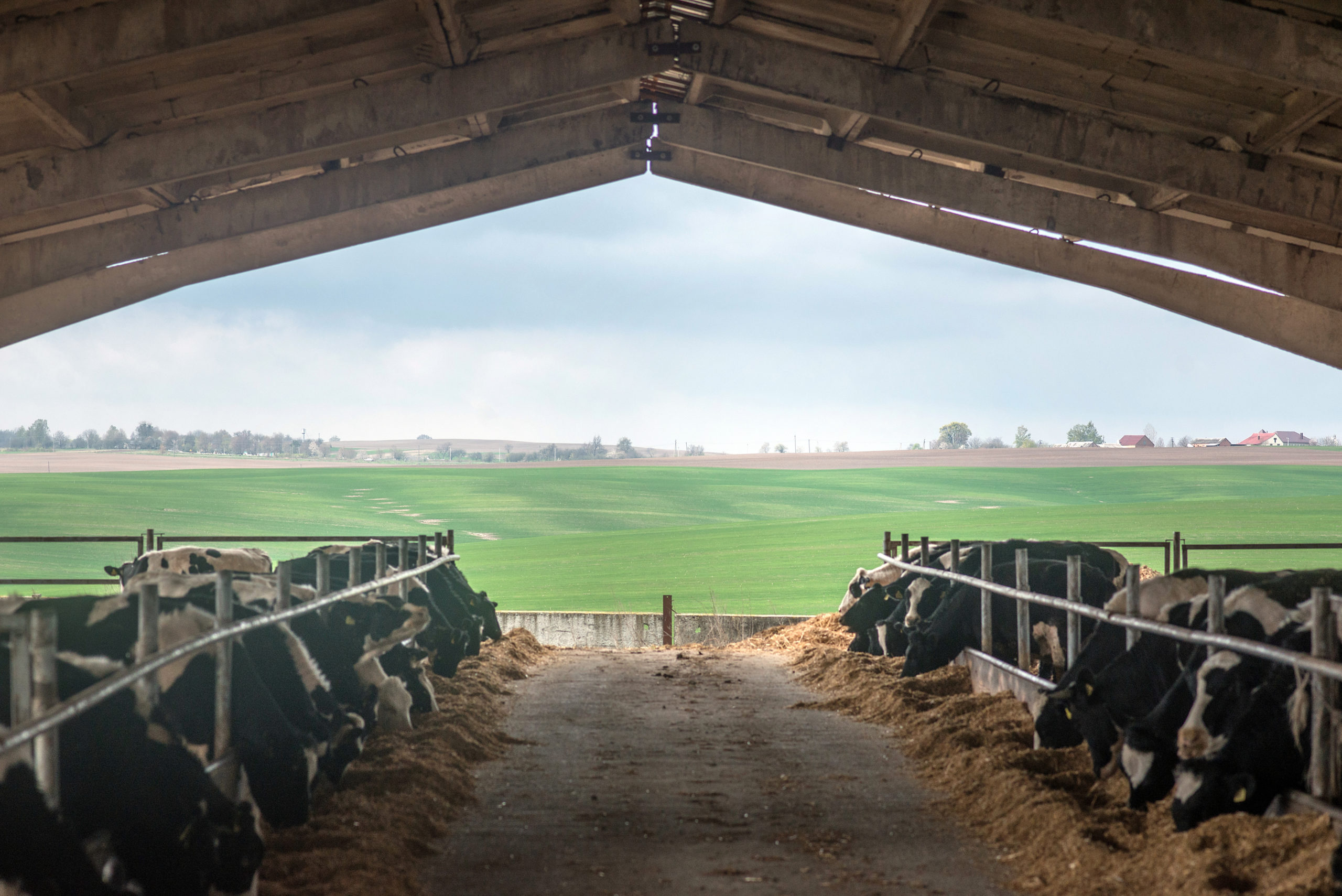Ministers from 46 countries kicked off a new phase of the Climate and Clean Air Coalition (CCAC) at COP26 today by approving the Coalition’s 2030 strategy, which will see scaled-up efforts to significantly reduce short-lived climate pollutants (SLCPs)—methane, hydrofluorocarbon (HFCs), black carbon, and tropospheric (ground level) ozone—by 2030.
The CCAC’s 2030 Strategy comes at a time when there are growing global concerns about methane emissions and increasing calls to urgently slow the rate of warming. The strategy plays on the Coalition’s strength of turning science into action. It aims to significantly reduce methane this decade in line with recommendations in the Global Methane Assessment and the United Nations Environment Programme’s (UNEP’s) Emissions Gap Report, and to speed up reductions of HFCs and black carbon. The Coalition will support the implementation of the Global Methane Pledge and assist all participants achieve its goal to reduce methane emissions by at least 30% by 2030
Ministers recognized that further reducing emissions of these powerful climate forcers is necessary to limit warming to 1.5⁰C and complements efforts to scale-up actions on carbon dioxide (CO2). Reducing these pollutants would also prevent millions of premature deaths from air pollution and advance the Sustainable Development Goals.

The Ministerial was opened by the Coalition’s current Co-Chairs, Ghana and the United States.
John Kerry, U.S. Special Presidential Envoy for Climate said the Coalition has been instrumental at elevating short-lived climate pollutants from the margins to the center of the climate change discussion.
“Because of this Coalition the world is finally paying attention,” said Kerry. “The CCAC’s collective diplomatic and scientific leadership has been instrumental in the development of the Global Methane Pledge. We need to step up ambition that’s why the CCAC’s Methane Flagship and other efforts will be critical.”
The CCAC’s Secretariat is hosted by the UN Environment Programme. In her opening remarks Inger Andersen, UNEP’s Executive Director said:
“To have a shot at keeping warming below 1.5°C this century, the world needs to halve annual greenhouse gas emissions in the next eight years. As the CCAC’s new 2030 strategy shows, action on short-lived climate pollutants can achieve fast results, help avoid tipping points and create multiple benefits.”
A focus on methane
Methane emissions are rising at an alarming rate. Halting and reversing this trend is a priority focus for the Coalition going forward.
Ministers approved the implementation of a Methane Flagship, which, starting in 2022, will foster and strengthen high-level commitments to reduce methane, amplify and raise awareness, support planning and delivery of strategies and plans, provide analysis and tools to support action, and scale up financing.
There was strong and broad support for the recently launched Global Methane Pledge and ministers welcomed the CCAC having a leadership role in supporting its implementation.
In a message to the Ministerial, Ursula von der Leyen, President of the European Commission said: “To slow down global warming short-lived climate pollutants like methane need to be tackled. The CCAC is an important forum for this. For that reason, we support the CCAC, in particular to implement the Global Methane Pledge.”

Methane bubbles trapped in Lake Baikal, Russia.
Philanthropies have raised $328 million to ratchet up ambition on methane and support countries implement the Global Methane Pledge. Philanthropies were represented at the Ministerial by Hannah McKinnon of the Sequoia Climate Fund, Carrie Doyle from the William and Flora Hewlett Foundation, and Justin Johnson from the Children’s Investment Fund Foundation.
Ms. McKinnon said: “Effectively tackling methane can help supercharge our progress on climate change in this critical decade. It will also improve the health and well-being of communities, especially those that contribute the least to the climate crisis but experience its harshest impacts. We look forward to supporting civil society, governments, researchers and more around the world to drive increasing ambition to tackle methane across sectors.”
Real reductions this decade
Ministers recognized that the CCAC has already facilitated much progress. It has shared good practices; strengthened the science behind SLCPs, globally, regionally, and nationally; and developed tools such as case studies, guidance documents, policies, and methodologies to guide emissions reductions. Many country partners have developed national action plans and policies that integrate climate, air quality and development goals, and 60 countries have included SLCP reduction in their commitments under the Paris Agreement (NDCs).
The CCAC has been instrumental in changing the emissions trajectories of black carbon and HFCs, with emissions of both pollutants expected to follow a downward trajectory over the coming decades. Improved fuel standards, adoption of renewable and cleaner energy, improved agricultural practices, and electrification of transport are expected to drive black carbon reductions. The Coalition’s high-level political efforts on phasing down HFCs contributed to passing the Kigali Amendment to the Montreal Protocol. Over Phase II the Coalition will continue to support ways to speed these reductions and focus on implementing actions at scale.
The potential to significantly reduce short-lived climate pollutants guides the Coalition’s 2030 strategy. Concerted global efforts to implement known practices and existing technologies can achieve global reductions of at least 40% of methane by 2030 compared to 2010; up to 70% of black carbon by 2030 relative to 2010; and 99.5% of HFCs by 2050 compared to 2010.
In approving the CCAC’s 2030 strategy, countries agree to work to strengthen capacity building, peer-to-peer engagement, and leadership to achieve substantial emission reductions. Governments and non-state partners will help countries to integrate short-lived climate pollutants into climate, clean air and development plans and policies, where needed, and move quickly from planning to emissions reductions in key polluting sectors.
Japan highlighted Coalition efforts ensure the proper disposal and destruction of HFCs. Tsuyoshi Michael Yamaguchi, Minister of the Environment, Japan said:
“Given the urgent need to address climate change comprehensively and the increasing demand of fluorocarbons as refrigerants in the cooling sector, it is essential to control fluorocarbons emissions throughout the life-cycle including leakage in use and discharge to the air at disposal. Japan will actively collaborate with the CCAC and its partners to tackle HFCs emissions in the Cooling Hub.”
Steven Guilbeault, Minister of Environment and Climate Change, Canada said:
“Reducing short-lived climate pollutants will have an immediate impact on the air we breathe and is one of the fastest, most cost-effective ways to combat climate change. As a founding member of the Climate and Clean Air Coalition, Canada is proud to be a leader in the development of the Coalition’s 2030 Strategy. Canada is stepping up to reduce short-lived climate pollutants, including methane, at home and abroad.”
Pledges came from Switzerland, Canada, the United States, Norway, Ireland, Sweden, Monaco, and the Flemish region of Belgium. Leaders provided quotes in support of the launch of Coalition’s 2030 strategy.
The Coalition’s 2030 strategy recognizes that mobilizing finance to achieve these reductions is critical. Working with its country and financial institutional partners, the Coalition will design financing models and strategies to fund solutions to deliver its mandate. To kickstart the new strategy countries pledged an initial $25 million to the Coalition’s trust fund as a first step towards its $150 million goal.
The CCAC welcomed new national and regional partners that have joined since its last meeting. These include: The African Union Commission, Burkina Faso, Gabon, Federal States of Micronesia, Niger, Spain, Uganda, and the Ukraine. Ministers invited other countries and partners who are committed to methane and SLCP mitigation to join the CCAC.